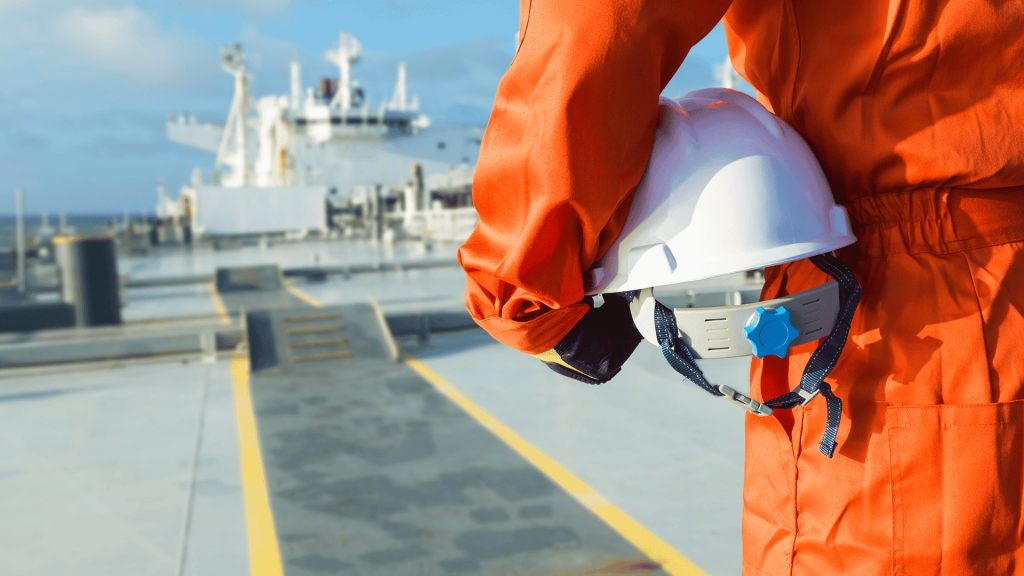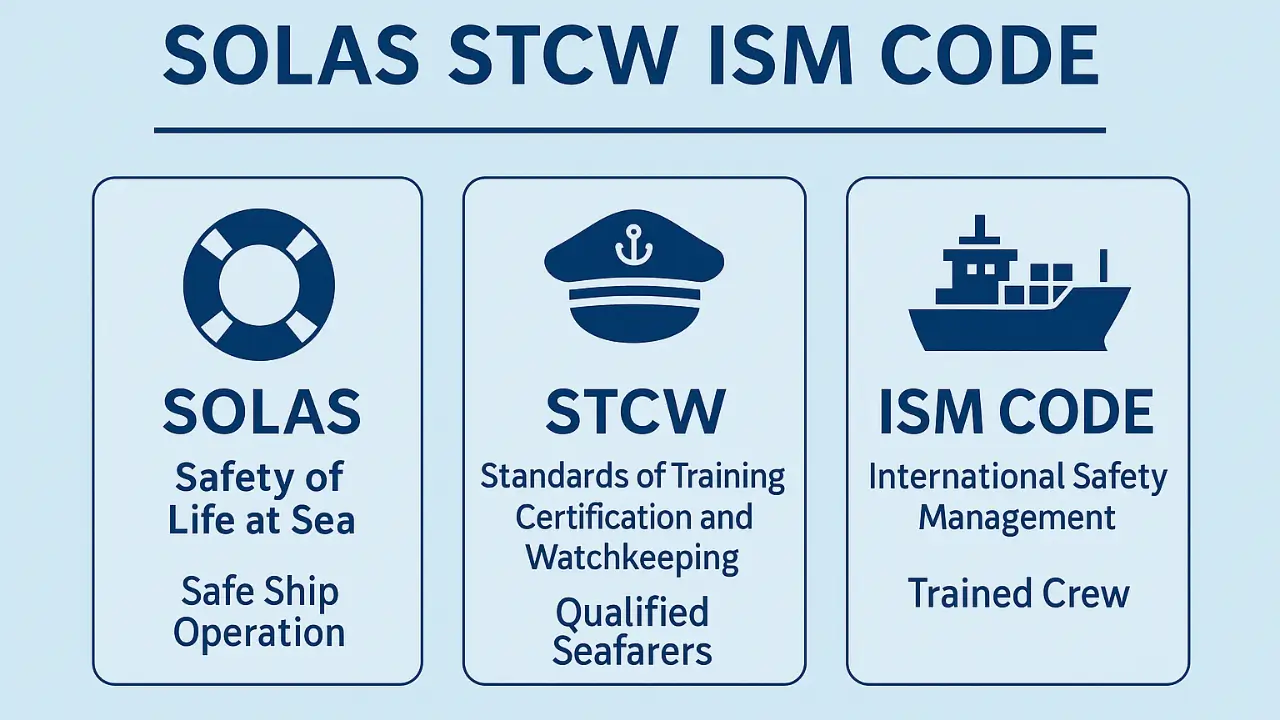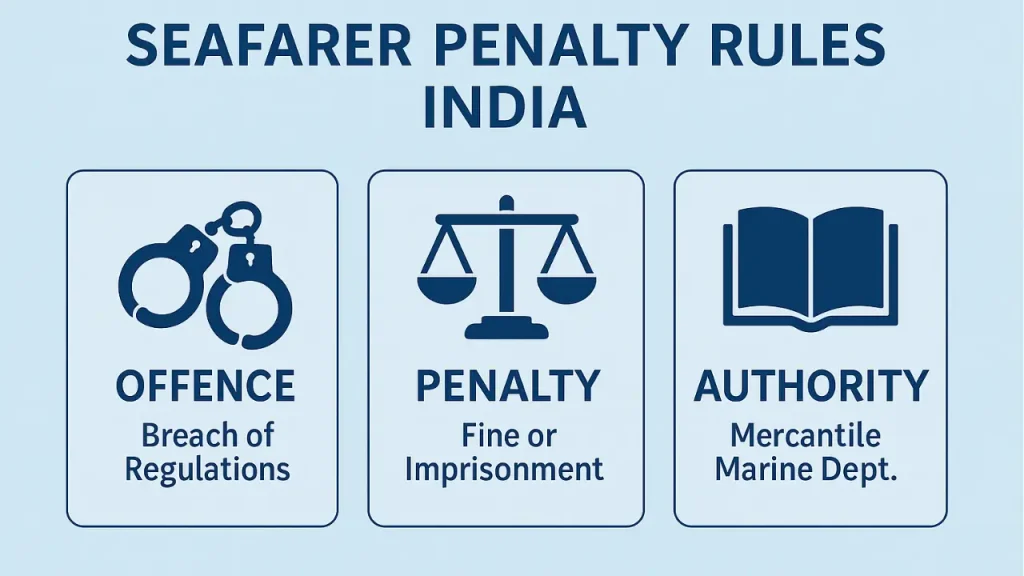On July 18, 2025, the Directorate General of Shipping (DGS) released Circular No. 31/2025—a critical directive aimed at eliminating fake maritime certifications and strengthening the standards of crew training under international maritime conventions. The circular reiterates compliance with STCW, SOLAS, and ISM Code regulations and puts the responsibility on shipowners, RPSL agencies, and seafarers to verify every certificate.

Overview of Relevant Conventions and Rules
| Convention/Rule | Purpose | India’s Implementation |
|---|---|---|
| STCW (Standards of Training, Certification, and Watchkeeping) | Ensure competency-based seafarer training | Enforced via Merchant Shipping (STCW) Rules, 2014 |
| SOLAS (Safety of Life at Sea) | Mandates safety practices at sea | Adopted under Merchant Shipping (Safe Operation) Rules, 2000 |
| ISM Code (International Safety Management) | Requires safe ship operation through trained crew | Implemented through DGS safety management frameworks |
India’s Compliance with STCW & SOLAS
India ensures international alignment through:
- Mandatory training at DGS-approved institutes
- Assessment and issuance of genuine CoCs/CoPs
- Recognition of foreign CoCs via STCW Regulation I/10

80% of Indian seafarers are deployed on foreign-flag ships—making compliance even more vital.
RPSL Agencies: First Line of Defense
| Responsibility | Mandate under RPSL Rules |
|---|---|
| Certificate Verification | Must verify CoC, CoP, and STCW course authenticity |
| Document Validation | Cross-check INDoS, CDC, Medical & ID papers |
| Record Keeping | Maintain up-to-date, secure digital records |
| Fraud Prevention | Detect & report suspicious or forged certificates |
Common Fraudulent Practices Uncovered
- Promises of “quick” foreign CoCs/CoPs without real exams
- Bundled fake STCW courses and certificates
- Institutes listed that don’t exist physically
- Port State Control (PSC) inspections found fake CoCs onboard
Mandatory Actions for All Maritime Stakeholders
| Stakeholder | Required Action |
|---|---|
| Seafarers | Only attend DGS-approved institutes. No shortcuts. |
| Shipowners & Managers | Verify all training/certificates via DGS portal or MMD. |
| RPSLs | Place only properly trained and certified crew. Maintain updated seafarer records. |
| Training Institutes | Must obtain DGS approval before conducting STCW courses. |
Penalties Under Circular 31/2025
- Fake CoC/CoP? → Immediate 2-year sailing ban
- CDC suspension and INDoS profile blocked
- RPSLs found guilty → Legal action under Merchant Shipping Act
- Certificates seized; criminal charges filed; foreign certificate authorities notified

Mutual Recognition of CoCs/CoPs (As per Annexure)
| Country | Mutual Recognition Year | Remarks |
|---|---|---|
| Malaysia | 2001 | Valid for Indian endorsement |
| UAE | 2017 | Recognized per STCW I/10 |
| South Korea | 2018 | Subject to tenure limits |
| Sweden | 2019 | Recognition in force |
| UK | 2022 | Full mutual agreement |
| Iran | 2022 | With DG Shipping oversight |
How to Verify Authentic Certificates
Use these official tools via https://www.dgshipping.gov.in:
- INDoS Checker
- CoC/CoP Authentication Tool
- Approved Training Institutes List
- MMD Contact Details for Verification
Conclusion
DGS Circular No. 31/2025 is a landmark move toward safeguarding lives at sea by eliminating fake seafarer certifications and strengthening compliance with SOLAS, STCW, and ISM Code. Every stakeholder—from seafarer to ship manager—must take accountability by verifying documents and promoting genuine training. With penalties now stricter than ever, the message is clear: there are no shortcuts in maritime safety.
FAQs
1. What is DGS Circular No. 31 of 2025?
DGS Circular No. 31/2025, issued by the Directorate General of Shipping on July 18, 2025, aims to eliminate the use of fraudulent seafarer certifications in India. It mandates that all seafarers must obtain training and certification only from DGS-approved institutes in line with STCW, SOLAS, and ISM conventions.
2. Why is authentic certification important for seafarers?
Authentic certification ensures that a seafarer is properly trained to handle onboard duties, safety procedures, and emergency situations. Using fake certificates puts the ship, crew, and environment at risk and may result in detentions, job bans, or legal penalties.
3. How can I verify if my CoC or STCW certificate is genuine?
Seafarers and agencies can verify the authenticity of certificates through DG Shipping’s online portals such as:
- CoC/CoP Verification Tool
- Contacting the nearest Mercantile Marine Department (MMD)
4. Which foreign CoCs are recognized by India?
India recognizes CoCs and CoPs from countries with mutual STCW agreements such as:
- Malaysia (2001)
- UAE (2017)
- South Korea (2018)
- Sweden (2019)
- UK (2022)
- Iran (2022)
Certificates must still be verified and endorsed under STCW Regulation I/10.
5. What happens if a seafarer is found with a fake certificate?
The seafarer faces a mandatory 2-year sailing ban, immediate suspension of CDC, and blocking of their INDoS profile. Legal actions may also be initiated under the Merchant Shipping Act.
